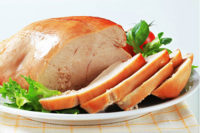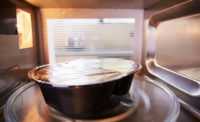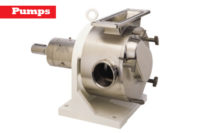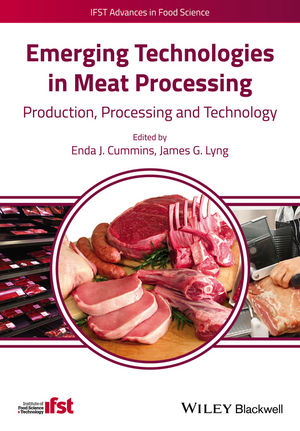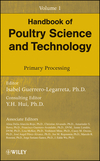Packaging Technology: Microwave Pasteurization
Technology now available in the Americas

A microwave pasteurized cooking and packaging method for chilled ready meals is now available in North, South and Central America exclusively through a partnership between Curwood, a Bemis Company, and MicVac, a Swedish-based solution provider.
“As a leading supplier of food-based packaging technologies, Curwood pays particular attention to existing and emerging consumer trends domestically and globally to support customer growth objectives,” explains David Engen, Curwood director of marketing. “Changing demographics, coupled with shifting economic conditions, have led to trends that support microwave pasteurization technology,” states Engen. “Consumers are demanding higher quality meal solutions that deliver on taste, texture, aroma and aesthetic appeal without the addition of preservatives or additives. MicVac technology provides a nutritious option — without sacrificing convenience — at an extended shelf life of 30-45 days.”
The addition of microwave pasteurization packaging solutions extends Curwood’s portfolio of food packaging solutions from fresh, frozen, retort and MAP packaging to include microwave pasteurization.
“Proven success in Europe and Asia has established the MicVac solution as the standard in microwave pasteurization,” says Engen. The MicVac method integrates a tray, lidding film and valve technology using a specially designed MicVac microwave tunnel cooking system The convenience of cooking raw ingredients and shipping chilled directly to the market revolutionizes how food is prepared, delivered and merchandised by brand owners and retailers. The cooking system is also delicate enough to open up product options to traditionally challenging foods like fish, shellfish, pasta and ethnic-oriented meals, offering consumers greater variety and flavor.
Prior to eating, the consumer heats the meal for about three minutes in a microwave, where it cooks under controlled steam pressure. The package whistles when it’s at the correct temperature, eliminating any question as to "if" or "when" the meal is properly heated. Unlike most heat-and-eat meal formats, the MicVac package goes directly from the shelf to the microwave, with no consumer prep required such as lid piercing or stirring.
The MicVac packaging platform solves a number of critical challenges for ready meal brands:
Extended shelf life without additives: Since the meals are pasteurized, 30-45 day shelf life reportedly enables longer production cycles and more cost-efficient production. Food waste and logistical challenges are reduced, while consistent quality, improved taste, texture and nutritional value are achieved.
Easy and efficient to transport and display: The "zero headspace" packaging format created through the patented technology allows the packages to be stored and transported upright without content shift or damage. The packages are designed to be merchandized horizontally or vertically for eye-catching store displays.
Simple, safe microwave cooking: Packaged meals go from refrigerator to microwave to plate. Consumers place the meal in the microwave oven for about three minutes; due to the patented process and special valve technology, there is no need to pierce or cut the lidding film. A clear audible whistle indicates when the meal is ready. Curwood delivers a tray and film combination where the film is intended to peel cleanly off the tray when the meal comes out of the microwave.
Ability to profitably execute ready meal innovations: MicVac packaging unleashes opportunities for ready-meal innovations that have only been available in Europe and Asia. With extended shelf life and improved heating performance, the door is open for brands to extend their reach into fresh ready meals, expand menu selections and create gourmet flavors with delicate upscale foods. In addition, the technology offers opportunities for food service, restaurant and institutional applications.
Source: Curwood
Editor's Note:
This article originally appeared on www.brandpackaging.com, a sister publication of The National Provisioner.
Looking for a reprint of this article?
From high-res PDFs to custom plaques, order your copy today!




